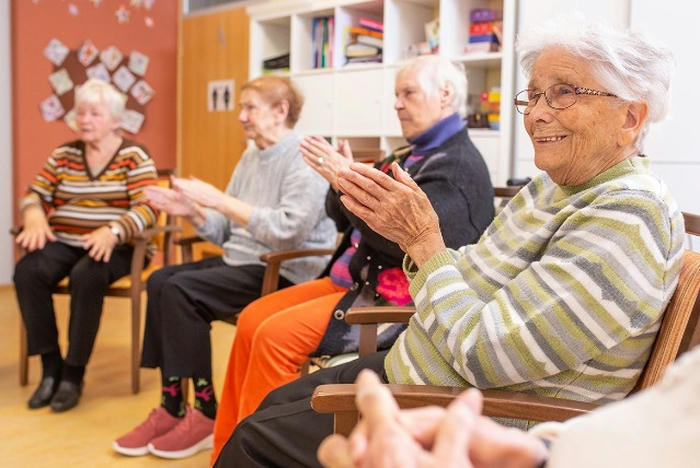Life in Old Age: Challenges, Joys, and Adaptation
Aging is a natural part of life, bringing both challenges and opportunities. As individuals enter their later years, physical, emotional, and social aspects of life change significantly. While some struggle with health issues and isolation, others find a renewed sense of purpose and contentment. Understanding the complexities of aging can help in making informed choices that lead to a fulfilling and dignified old age.

Physical and Health-Related Changes
One of the most noticeable aspects of aging is the transformation of the body. Muscle mass decreases, metabolism slows, and the risk of chronic illnesses such as arthritis, diabetes, and cardiovascular diseases rises. These conditions require careful management, often through diet, exercise, and medical care.
For instance, mobility becomes a concern for many seniors, making everyday tasks more difficult. Simple activities like climbing stairs or carrying groceries may require assistance. However, advancements in medical technology and assistive devices have provided effective solutions to maintain independence for longer periods. Regular health check-ups and preventive measures, such as vaccinations and screenings, contribute significantly to overall well-being in old age.
Emotional and Psychological Well-Being
Mental health is as important as physical health in later years. Many elderly individuals experience a shift in their emotional needs and psychological well-being. Feelings of loneliness, anxiety, or even depression may arise, especially when social interactions become limited. Losing close friends, partners, or family members further amplifies emotional distress.
However, maintaining an active mind can be beneficial. Engaging in hobbies, learning new skills, or even joining community groups fosters a sense of belonging and purpose. Studies suggest that older adults who participate in creative activities, such as painting or playing musical instruments, report higher levels of life satisfaction. Mental exercises, including puzzles and reading, also contribute to cognitive health and delay the onset of memory-related diseases.
Social Relationships and Support Systems
Maintaining strong relationships becomes crucial in old age. Interaction with family, friends, and community members plays a significant role in emotional stability. A support system helps in combating feelings of isolation and provides assistance during difficult times.
For example, senior citizens who live in multigenerational households often experience higher levels of happiness due to constant social interaction. Those who reside alone may find solace in senior centers or clubs where they can engage in group activities. Volunteering is another way to stay socially active, as it fosters a sense of contribution and belonging.
Case Study: Finding Purpose in Old Age
Mary Thompson, an 82-year-old retired schoolteacher, faced severe loneliness after her husband's passing. With her children living in different states and most of her friends either unwell or deceased, she found herself in a state of emotional distress. Everyday tasks felt monotonous, and the absence of social interaction led to feelings of isolation.
Determined to bring meaning back into her life, Mary joined a local literacy program where she taught young children how to read. Through this initiative, she not only regained her sense of purpose but also built strong connections with fellow volunteers and children who admired her wisdom. Over time, her overall well-being improved significantly, and she felt a renewed sense of joy.
Mary's story illustrates how finding an activity that aligns with personal interests can transform life in old age. Staying active and engaged in meaningful pursuits allows individuals to thrive despite the inevitable changes that come with aging.

Financial Stability and Retirement Planning
Aging often brings financial concerns, particularly for those who rely on fixed incomes or pensions. Managing expenses while ensuring a comfortable lifestyle requires careful financial planning. Healthcare costs, housing, and day-to-day living expenses need to be considered well in advance.
Many seniors turn to part-time work or consultancy roles to supplement their income. Others opt for downsizing their homes to reduce living costs. Financial literacy plays a crucial role in ensuring security during the later years. Seeking guidance from professionals or using budgeting tools can aid in making informed financial decisions.
Adapting to Technological Advancements
Technology continues to evolve at a rapid pace, and adapting to these changes can enhance the quality of life for the elderly. Online communication tools enable long-distance connections with loved ones, while telemedicine allows easier access to healthcare professionals. Learning how to use smartphones, computers, and smart home devices makes daily activities more manageable and safe.
Digital literacy programs designed for older adults provide step-by-step guidance on using technology effectively. Those who embrace these tools often find it easier to stay informed, entertained, and connected with the world around them.
Conclusion
Life in old age presents unique challenges, but it also offers opportunities for growth, reflection, and fulfillment. Maintaining good health, nurturing relationships, engaging in meaningful activities, and adapting to societal and technological changes contribute to a rewarding experience. By embracing these aspects, aging can become a phase of life filled with wisdom, resilience, and contentment.
